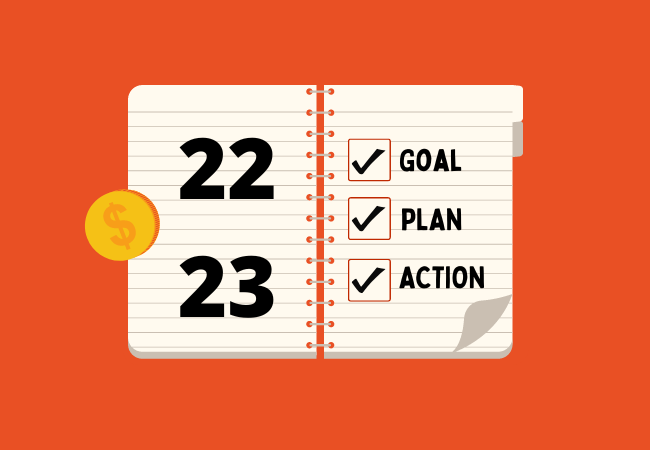

While prices are rising around Australia, so are interest rates, but it’s not all doom and gloom - especially if you’re renting and saving for a home deposit. Higher prices are a hip-pocket pinch point, but there are ways to navigate this period - and get a head start for the new financial year.
Are you paying interest on credit card debt? Now’s the time to commit to making a chance and paying it off. Get a picture of what you owe, then list those debts and the corresponding interest rates. One approach is to pay off your smallest debts first (a snowball approach) and work upwards; another is to kickstart the debts with the highest interest rate.
It’s not just credit cards either - don’t forget your buy now pay later debts. There might not be any interest attached, but you could face penalties if you miss payments.
Backing yourself with a healthy emergency fund is a solid and smart financial strategy. This is the money you put aside for a rainy day to cover unexpected expenses like when the car breaks down. Your emergency fund will give you the means to cope if - and when - those bumps come up.
Saving for this fund might feel out of reach, especially if you have an existing credit card or a vehicle loan, but it’s important to start where you are. Ideally, you want this buffer to cover your essential expenses, like rent, utility bills, groceries and transport.
If you want to build your lifetime savings, making voluntary contributions to your super is a great way to get there. You can use the MyGov ATO portal to determine how much of your annual $27,500 concessional contributions cap you used this financial year - and how much you have outstanding from previous years!
If you have the means, devise a plan to regularly salary sacrifice throughout the next financial year to max out this cap.
Credit scores can be confusing, and they’re not something we think about often until we have to. Your credit score becomes important when you want to borrow money, whether from a bank, for a credit card or even for a payment plan. It’s a key factor when you apply for a home loan too! To build it up, ensure you pay your bills on time, make prompt repayments on loans and don’t make unnecessary credit card applications.
Did you know RentPay’s Scorebuilder feature can positively impact your credit score? Each month you have the Scorebuilder feature, we report your account status to one of Australia’s largest credit reporting bodies. Click here to find out how RentPay can help you achieve financial freedom.
Tracking your expenses isn’t budgeting; it’s simply a record of the money you’ve already spent and valuable insight into where it’s going.
Keeping track of everything you earn and what you spend money on for a month (and not just a week or two) will let you see all your income and expenses in one place. Consider downloading your previous month’s transactions from the bank and categorising them.
Once you’ve tracked your expenses for a while, you can use your spending history to determine comfortable amounts for your budget categories. It’ll also help you identify key goals and force a small space in the budget for each one.
We all want to save money, right? One of the best ways to do it is to spend less of it consciously. It might be easier said than done, but spending less money in the next financial year is doable with a couple of spending habit tweaks. Make a grocery list to remove temptation, make your coffee in the office and bring lunch to work. Have date nights at home or consider a food box service like Hello Fresh or Dinnerly to reduce wastage.
If you know you have a big expense coming up in the next 12 months, like a vehicle service, put that money aside or set up an account with a specific goal.
For example, you might create a ‘Car’ savings account, which will cover the expected out-of-pocket costs you’ll incur in the year ahead, outside of regular payments like fuel and direct debit payments like car insurance. That might be $800 for your rego, $150 for a driver’s licence renewal and $400 for the annual service. It’s comforting to know that money is set aside for when you need it, rather than relying on credit cards or a loan when they’re due.
No matter where in the year you read this, there’s always time to create an annual budget to estimate your living costs for the next financial year. Having a good idea of your yearly living expenses will help you plan for the future and give you peace of mind that the money you’ve put into your emergency fund is also sufficient.
Happy new financial year, everyone.